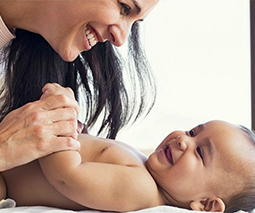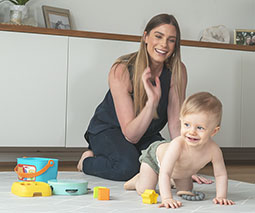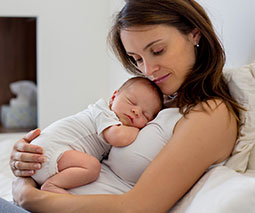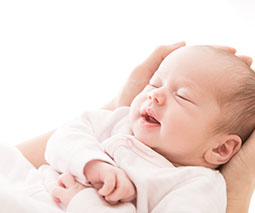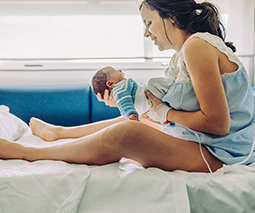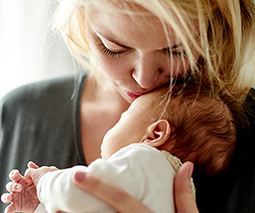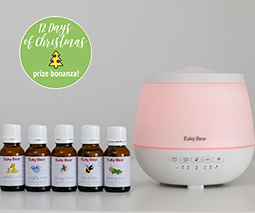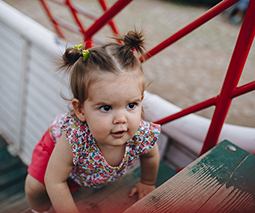Please hug your baby as early and often as you can, says science!
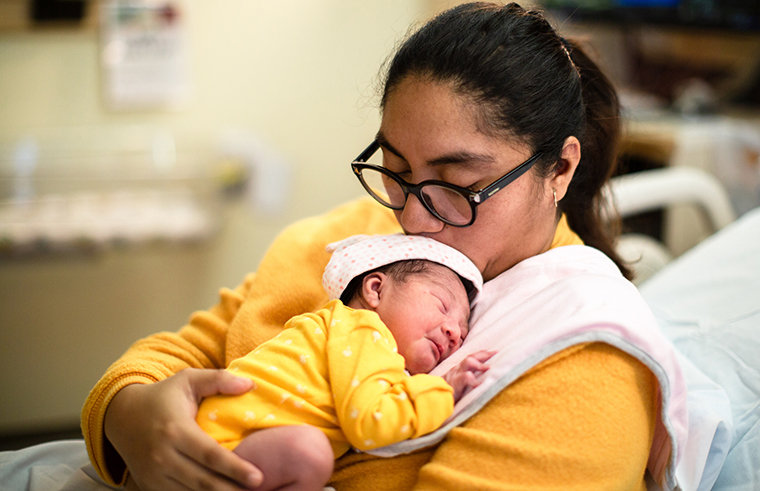
The snuggle is real! A US study has found that cuddling babies very often, from a very early age, is vital to their development and has lots of benefits. Parents, grannies and grandpas around the world cheered in delight!
The more hugs, the better
While it was recently – thankfully – categorically confirmed that the notion of spoiling babies was a total myth, new research tells us that skin-to-skin touch and cuddles are actually vital, sparking positive changes in our babies’ developing brains.
They found out that babies who were cuddled or touched in a nurturing, supportive way had a stronger response to touch and were learning important, attachment-enhancing lessons about the people in their lives.
“Gentle touch, especially skin on skin, is just one of the most important things parents can do for their babies,” the study’s lead author, Dr. Nathalie Maitre says.
Gently does it
The study monitored the way a group of 125 premature and full-term infants responded to gentle touch. The responses of the more heavily monitored premmie babies especially gave them important clues about how touch impacts littlies’ development.
The premmie babies generally had a reduced response to being touched (compared to full term bubs) overall, but there were notable differences between two groups of premmie bubs.
The premmies that had been touched gently by their parents or carers developed a positive, strong response to touch. Premmies who had undergone less gentle touch and more painful medical procedures in their early days had a more restrained reaction to being touched.
Little lessons
This led researchers to conclude that the way we are touched in our first days and weeks affects how our brains respond to touch in the long term.
The experts explained that newborns rely heavily on sound and touch in these early days, while their vision is still developing. Touch is a vital first form of communication for tiny people.
The study team explained that being touched gently teaches babies important lessons about the people in their lives, and the more they are touched (and cuddled) the more they learn.
“More exposure to these types of supportive touch can actually impact how the brain processes touch, a sense necessary for learning and social-emotional connections,” study lead author Dr. Nathalie Maitre of Nationwide Children’s Hospital in Columbus, Ohio told Reuters.
“What is surprising is that painful procedures which are known to impact processing of pain in the brain also impact processing of touch, in a negative way,” Maitre further clarified.
Positive touch has positive outcomes.
Early days
The study concluded that these early cuddles and snuggles made a difference to kids’ developing brains.
“We showed that, when controlling for prematurity and analgesics, supportive experiences (e.g., breastfeeding, skin-to-skin care) are associated with stronger brain responses, whereas painful experiences (e.g., skin punctures, tube insertions) are associated with reduced brain responses to the same touch stimuli.”
“Our results shed crucial insights into the mechanisms through which common early perinatal experiences may shape… later perceptual, cognitive, and social development,” researchers said.
